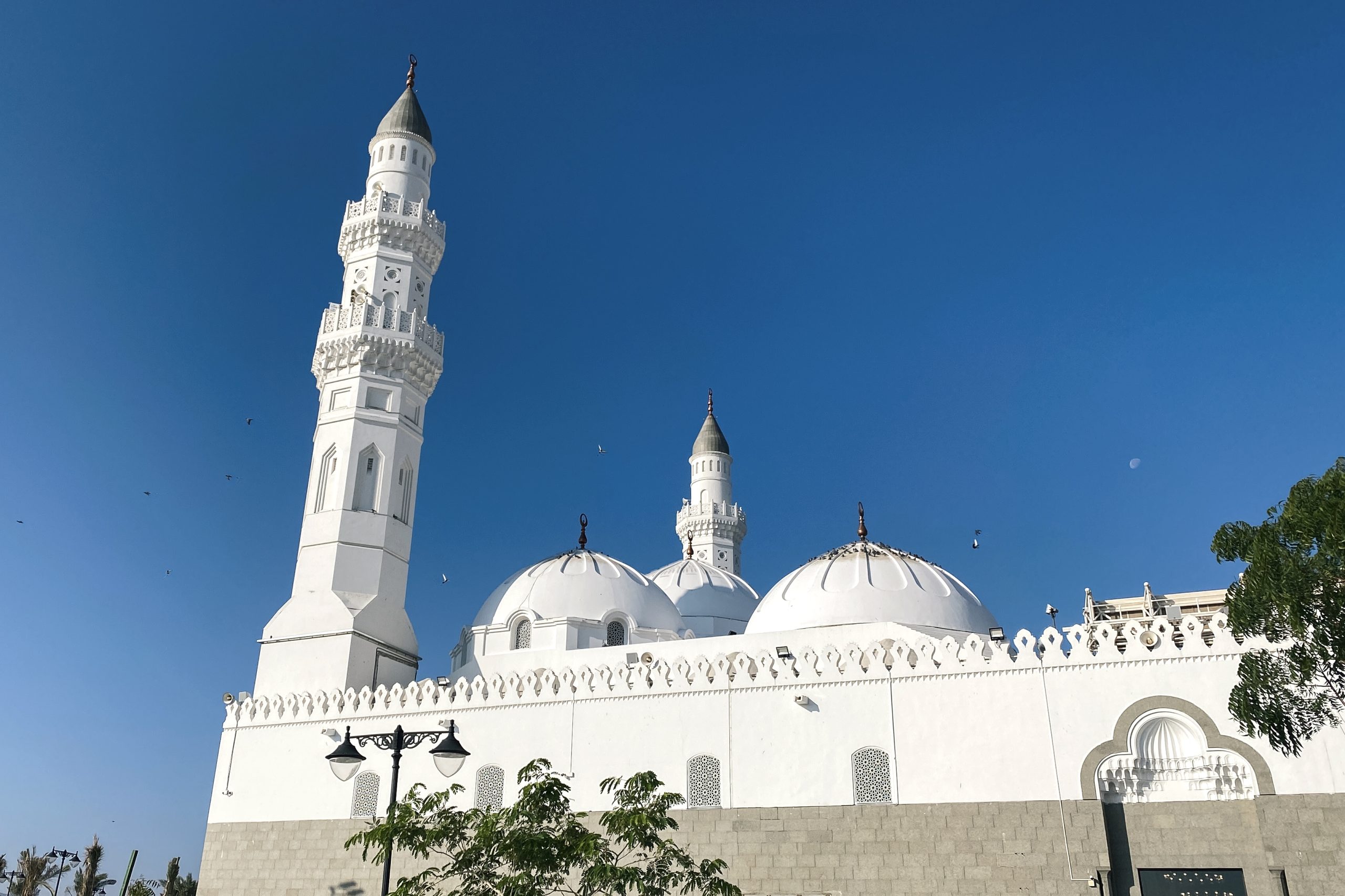Rabi’ al-Awwal, the third month of the Islamic lunar calendar, marks several pivotal moments in the life of Prophet Muhammad (peace be upon him). Among these events, one that holds special historical and religious importance is the establishment of the first mosque in Islam, the Quba Mosque. Situated on the outskirts of Madinah, Quba Mosque was founded during the Prophet’s Hijrah from Makkah to Madinah, symbolizing the beginning of a new era for the Muslim community.
The Foundation of Quba Mosque: A New Beginning
The journey of Hijrah (migration) was a critical turning point for the early Muslim community. As Prophet Muhammad (peace be upon him) and his companions left the hostile environment of Makkah, they embarked on a journey of hope and faith, trusting in Allah’s protection and guidance. On the way to Madinah, the Prophet stopped at a village called Quba, located a few miles from Madinah. It was here that he laid the foundation of the first mosque in Islam.
The Quran references this moment in Surah At-Tawbah:
“There is a mosque whose foundation was laid from the first day on piety; it is more worthy of your standing forth (for prayer) therein.” (Quran 9:108)
The establishment of Quba Mosque marked the beginning of a physical and spiritual sanctuary for the Muslim community. It was not only a place of worship but also a center for community gatherings, consultation, and learning. The Prophet (peace be upon him) himself participated in the construction of the mosque, emphasizing the importance of unity and collective effort in building a strong community.
The Virtue of Praying in Quba Mosque
The Quba Mosque holds a unique place in Islamic tradition due to its foundation being laid by the Prophet Muhammad (peace be upon him) himself. The Prophet would frequently visit Quba Mosque, especially on Saturdays, to offer prayers. It is narrated by Ibn Umar (may Allah be pleased with him):
“The Prophet used to go to the Mosque of Quba every Saturday, walking and riding.” (Sahih Bukhari)
The Prophet also highlighted the merit of performing prayers at Quba Mosque. In a hadith narrated by Sahl bin Hunayf (may Allah be pleased with him), the Prophet (peace be upon him) said:
“Whoever purifies himself in his house, then comes to the mosque of Quba and prays therein, will have a reward like that of Umrah.” (Sunan Ibn Majah)
This hadith underscores the spiritual significance of Quba Mosque, encouraging Muslims to seek its blessings and make it a part of their spiritual journey whenever they visit Madinah.
Lessons from the Establishment of Quba Mosque
Unity and Community Building:
The foundation of Quba Mosque symbolizes the importance of unity in Islam. By participating in its construction, the Prophet (peace be upon him) demonstrated the value of collective effort and the role of a mosque as a hub for community bonding. Mosques are not just places of worship; they are centers for social interaction, learning, and mutual support.
Simplicity and Sincerity:
The Quba Mosque, though simple in its construction, was built on piety and sincerity. This teaches Muslims that the essence of a mosque lies in its spiritual purpose rather than its architectural grandeur. The purity of intention and devotion to Allah are what make a place truly sacred.
Consistency in Worship:
The Prophet’s regular visits to Quba Mosque reflect the importance of consistency in worship. His actions serve as a reminder for Muslims to be steadfast in their prayers and regular in their visits to mosques, cultivating a strong connection with their faith.
Modern Reflections on Quba Mosque
Today, Quba Mosque stands as a testament to the enduring legacy of the Prophet Muhammad (peace be upon him) and his commitment to building a strong, united, and devout community. Pilgrims visiting Madinah often make it a point to visit Quba Mosque, recognizing the historical and spiritual significance it holds. The mosque continues to inspire Muslims to reflect on the early days of Islam, the challenges faced by the Prophet and his companions, and the importance of maintaining the values of compassion, justice, and unity that were foundational to the Muslim Ummah.
Conclusion
The foundation of Quba Mosque is not just a historical event; it is a symbol of faith, unity, and piety that continues to inspire Muslims today. As we reflect on this significant event, let us renew our commitment to building strong, united communities that uphold the values of Islam.
For those seeking to connect more deeply with these sacred moments and places, now is the perfect time to plan your own journey. Join Shaykh Abdulwahid this April for the half-term Umrah trip, where you’ll have the opportunity to visit Madinah and pray at Quba Mosque, retracing the steps of the Prophet (peace be upon him). Don’t miss this chance for a spiritually enriching experience.
For more details and to secure your spot, visit As-Safar Hajj and Umrah. Let’s embark on this transformative journey together!
